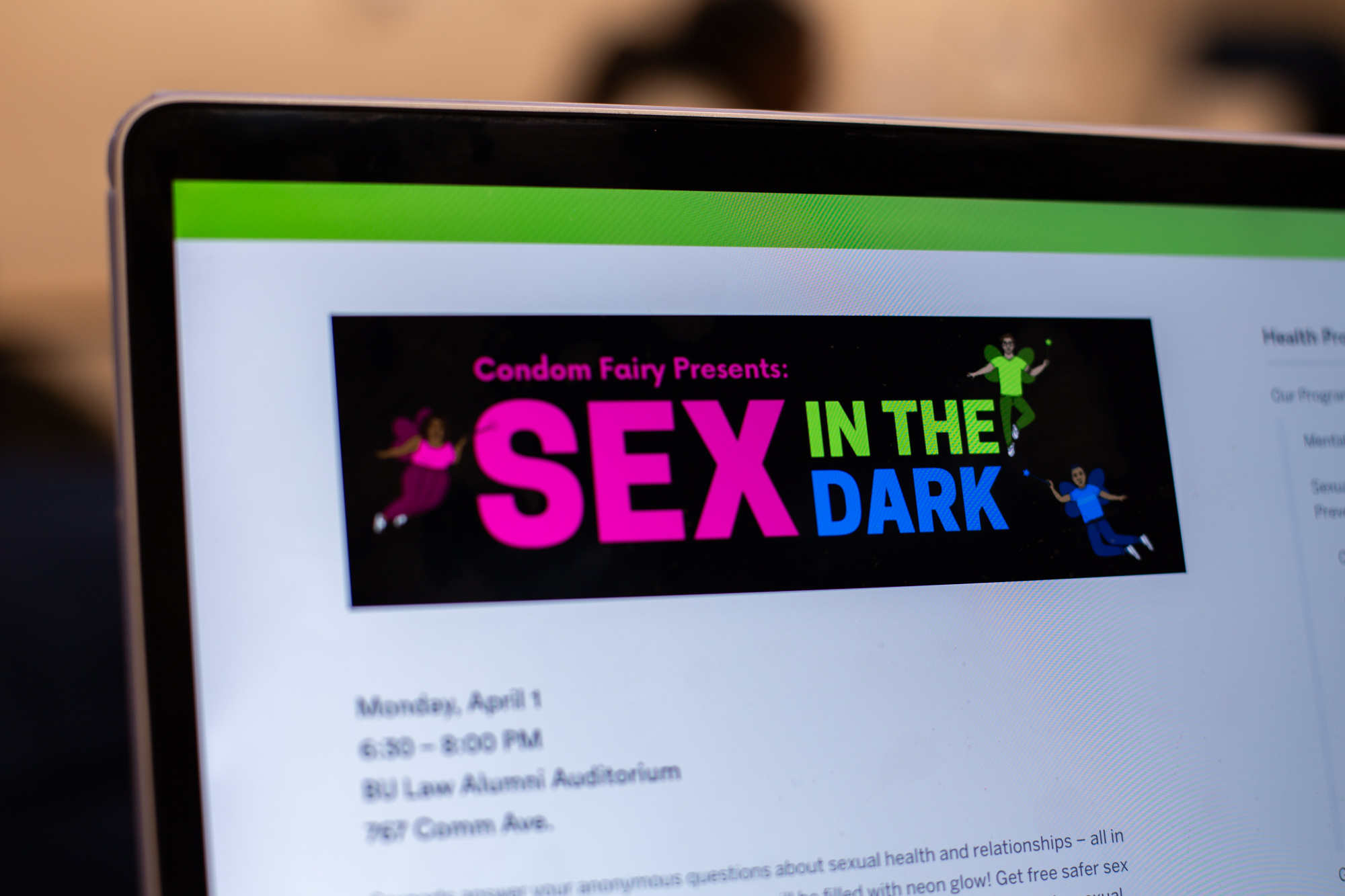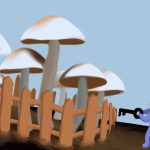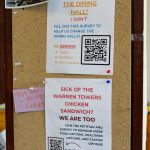Boston University’s Student Health Services’ annual Sex in the Dark event is not only a clever play on words, but a sex education event that is literally held in the dark.

This year’s Sex in the Dark took place on Monday, in-person for the first time since the COVID-19 pandemic. The panelists were made up of “sexperts,” who answered students’ anonymous questions about sexual health and relationships, according to the Student Health Services website.
“I often like to have sex for science to learn,” said Stephanie Orozco, a community health educator with Cambridge Health Alliance and a bilingual sexual health educator. “Sometimes, I look for people and circumstances and situations where I can learn something new and explore and learn more about myself.”
Throughout the event, the panelists emphasized themes of communication and self-exploration in fostering a healthy sex life.
“It’s just an awesome time to really help get a lot of those questions … to ask the ‘sexperts’ or the experts in these fields to get some accurate information,” said Hannah Landsberg, panelist and associate director of Student Health Services.
Orozco said in an interview she uses an anonymous approach when teaching sex education lessons to middle and high school students.
“The anonymous question part is everyone’s favorite part. They can ask whatever, they could talk about whatever and I take every question seriously,” she said. “It’s harder on a bigger scale like a college campus, and I think this is a good way to do it, but maybe more than once a year.”
Nathan Brewer, the director of BU’s Sexual Assault Response and Prevention Center, SARP, and one of the panelists, said in an interview it’s important to foster conversations about sex on college campuses because, while there have previously been efforts to reduce stigma around sex, there has been less of a movement to normalize talking about sex.
“Humans are, for the most part, sexual beings, and folks have a right to being educated before they’re stepping into romantic and sexual relationships,” he said.
Brewer also said sex positivity is used as a preventative measure against violence.
“The 18- to 22- year period of people’s life is the highest risk period for sexual violence and for dating violence,” he said. “If we’re thinking about how sex positivity intersects with people being prepared and confident in how they approach sexual relationships and romantic relationships, I see it as a kind of essential part, a necessary part, of doing violence prevention.”
During the 2022 to 2023 school year, there were 61 reports of Title IX sexual misconduct cases, and 168 reports of Non-Title IX sexual misconduct cases at BU, according to the Committee on Sexual Assault & Harassment Prevention annual data.
When conducting clinical work at SARP, Brewer said he centers social justice, especially for women and LGBTQ+ people who disproportionately experience sexual and domestic violence.
“Those marginalized groups, when they do experience violence tend to experience more severe types, and have more injuries or other kinds of major issues,” Brewer said. “Often those groups also are less likely to engage with forms of supports because they’re afraid of transphobia, homophobia, being rejected.”
Orozco said she prefers to focus on sex acceptance rather than sex positivity as a way to normalize sex in society.
“I truly believe that every single sexual encounter is an opportunity to learn about yourself, or about other people, or how you move or how you handle or maneuver a situation,” she said.
Anne-Marie Abban-Demitrus, a third-year PhD student studying molecular biology, attended Sex in the Dark. Originally from Ghana, which she calls a “conservative country,” she said she wanted to learn more about sex education because she wanted to inform herself on topics like gender and sexuality.
“It’s more the day-to-day and how you approach sex that, in the end, matters and guarantees the best satisfaction,” Abban-Demitrus said.
With BU’s large national and international community, Brewer said Sex in the Dark allows BU Student Health Services to meet each student with questions from all walks of life.
“We really have a wide range of knowledge when folks are coming to campus about what sex and relationships look like,” he said. “What Sex in the Dark does well is that it gives an opportunity where you can ask the question that’s most pertinent to you, regardless of which part of that spectrum you’re coming from.”














